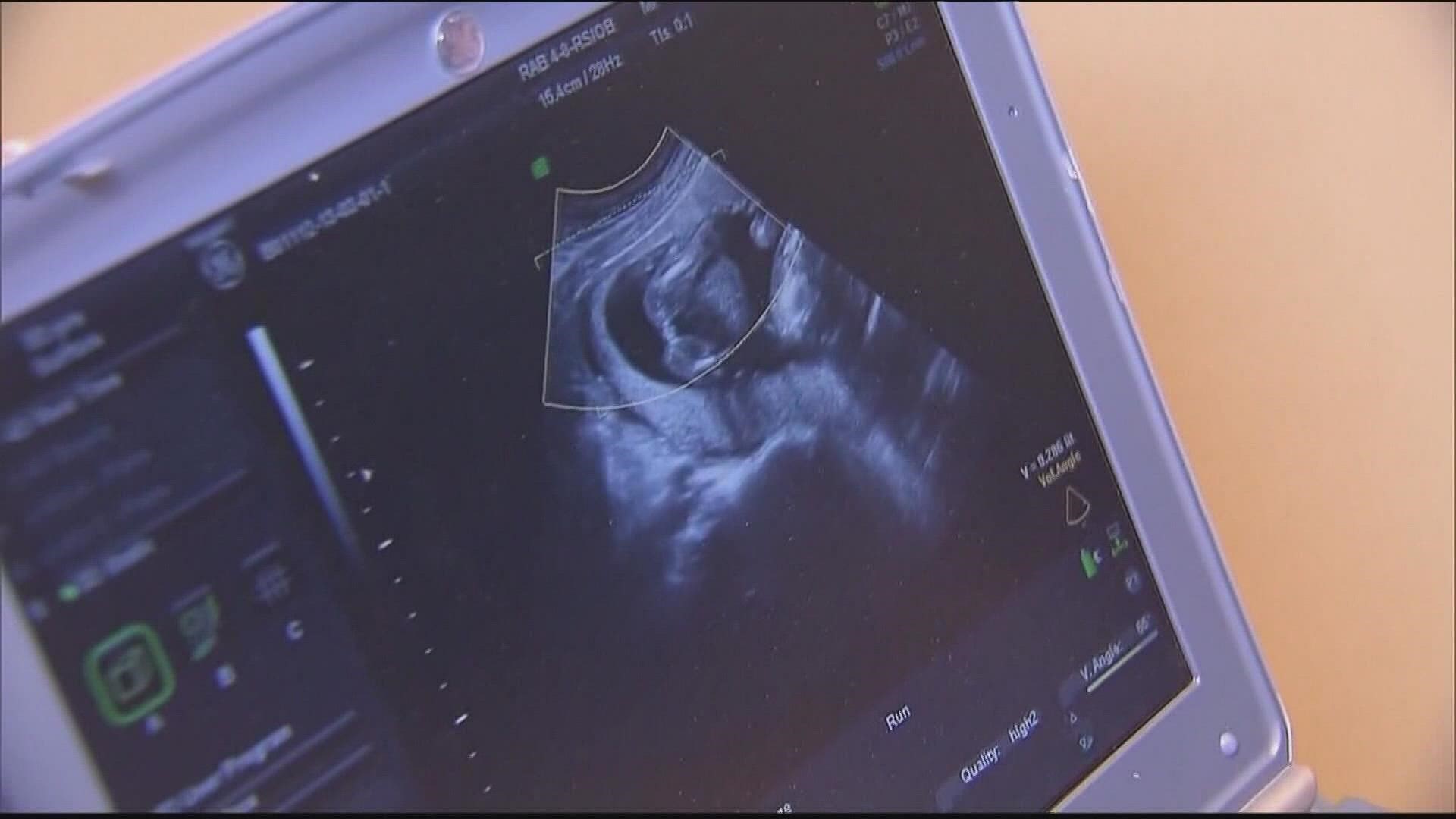ATLANTA — Georgia's abortion law banning the procedure when there is any detection of a "fetal heartbeat," or roughly six weeks, is no more. A Fulton County judge on Tuesday effectively voided it.
However, Judge Robert C. I. McBurney fashioned his ruling on a legal principle concerned more with how and when the law was passed rather than addressing the issue of whether Georgia's state constitution might confer a right to privacy that would protect abortion procedures - which was the meatier argument brought by opponents of the "heartbeat" law.
Because of that, the door remains open for Georgia's state legislature to basically re-pass the law, or a similar version of it, that would tightly restrict abortion.
Here's an explanation of what Judge McBurney's ruling means:
Why was the Georgia abortion law overturned
Ab initio
Judge McBurney rested the bulk of his ruling on the legal principle of ab initio.
Without getting too into the weeds (you can see a definition of the principle at Cornell's Legal Information Institute here), it basically means this: the Georgia law was unconstitutional from the get-go, and so it was void from the get-go regardless of how Supreme Court precedent later changed.
At the time the Georgia legislature passed the six-week abortion ban, such bans were unconstitutional under the U.S. Supreme Court precedent set under Roe v. Wade. Only later, with the ruling in Dobbs v. Jackson Women's Health Organization, did the Supreme Court overturn the Roe precedent.
Applying the ab initio principle here essentially means you can't pass an unconstitutional law even if it becomes constitutional later.
Does that mean Georgia could just pass another abortion law later?
It appears so.
McBurney writes in his ruling: "Our state legislators are now, under Dobbs, free to move away from a post-viability ban in an effort to strike a different balance between the interests of fetal life and women’s bodily autonomy, should they conclude that that is what is best for Georgians."
Basically: It was unconstitutional for the state legislature to ban abortions the way they did under Roe, and so the law they wrote is unconstitutional, but under Dobbs, a new law would be free to ban abortion.
But abortions after six weeks are legal again in Georgia for now?
Correct.
McBurney ruled that the portions of the 2019 law that established a six-week ban are "void ab initio and of no effect" that the state of Georgia is prohibited from "seeking to enforce in any manner the post-heartbeat ban on abortion procedures in Georgia" and that the state's abortion rules are to revert back to what they were in 2019 before the passage of the "heartbeat" law.
But could they become illegal again?
Also correct.
The state has said it would appeal McBurney's decision, meaning either the Court of Appeals of Georgia or the Supreme Court of Georgia could strike his ruling down.
The Georgia legislature, which reconvenes in January, could also look to simply pass a new law that would not be unconstitutional ab initio.
What about the right to privacy argument?
McBurney left that one in the air for now.
He wrote: "Whether Georgia's Constitution countenances a post-heartbeat ban (with certain exceptions for medical emergencies, rape, etc.) is not being decided here."
However, McBurney did appear sympathetic to at least some elements of the argument that the Georgia constitution allows for a right to privacy that would prohibit strict abortion bans.
He cited "strong privacy protections Georgia’s Supreme Court has declared our State’s Constitution affords medical records" and a "strong vein of constitutional jurisprudence" that at least one element of the right to privacy argument - challenging the part of the law allowing district attorneys to access medical records in order to prosecute abortion cases - could possibly rest upon.
So what happens next?
The State of Georgia has appealed the ruling to the Supreme Court of Georgia.
Outside of the courts, the state legislature must determine if it wants to or can pass a new abortion law. It is entirely possible there may not be the political willpower for a new law.

